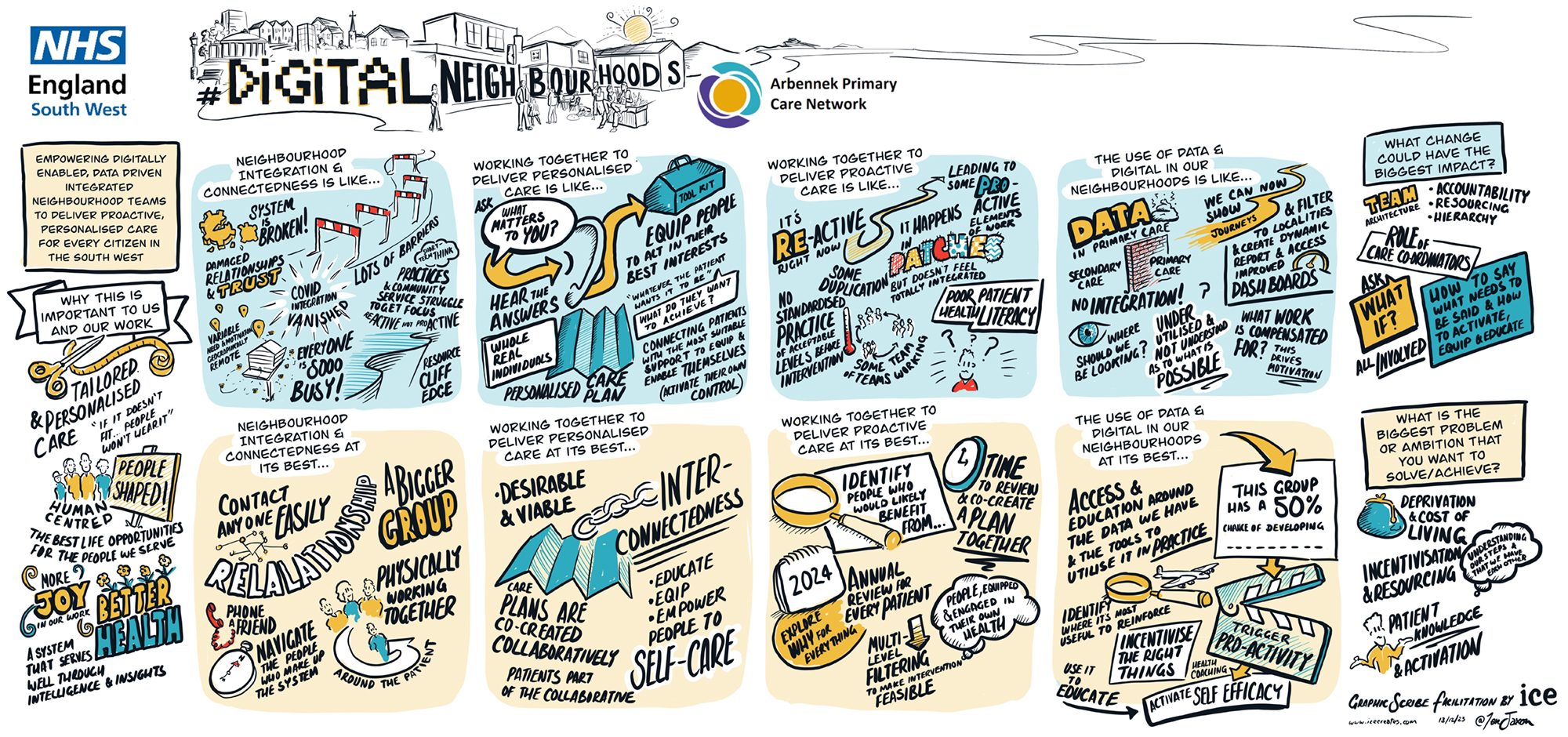The challenge driving the need for integrated neighbourhood solutions
A single ICB area reported 600 most complex needs patients who accounted for 3,500 A&E attendances and 55,000 GP interactions in one year.
We discovered care was fragmented, inappropriately used, with professionals using disconnected systems and patients repeating their stories and getting lost navigating services.
Our work designed and launched ‘integrated neighbourhood teams’ at the place, which were energised and enabled to deliver proactive, preventative care to high-risk patients and, as a result, reduce demand on services.

Our approach to building integrated neighbourhood solutions
Working with 6 ICBs, 31 PCNs and 6 Vanguards across the South West, we engaged hundreds of professionals and thousands of residents and communities, we co-designed pilots and solutions that were tested at a small scale and scaled up. Our pilots included:
- Using predictive AI to identify patients at risk
- Forming multi-disciplinary teams to identify holistic needs and provide proactive care
- A shared care record to streamline referrals.

The impact of integrated neighbourhood solutions
We co-designed solutions with professionals and patients. This was Human-Centred Design, it enabled local systems to harness technology and work better and faster together.
You can explore more through our articles on behavioural insight, co-creation in public services and integrated healthy lifestyle services, along with NHS England guidance on neighbourhood working for the wider context.
Ready to explore what’s possible next?
- Learn more about our approach:
- See the latest insight shaping UK public health:
- Discover how others are transforming services across the UK
- NHS South West
Sparking a dramatic move to people-centred, preventative care and stronger local collaboration, people where motivated, well and happier, Service use for health and care dropped.
2,500
People involved in pilots
3-31-6
3 ICB's, 31 vanguards ^ integrated pilots from across the South West
15
Tests of change now being scaled up
“Access to the best technology doesn’t drive change. Without collaboration across systems and people, even the most advanced data and AI systems won’t improve outcomes.“




